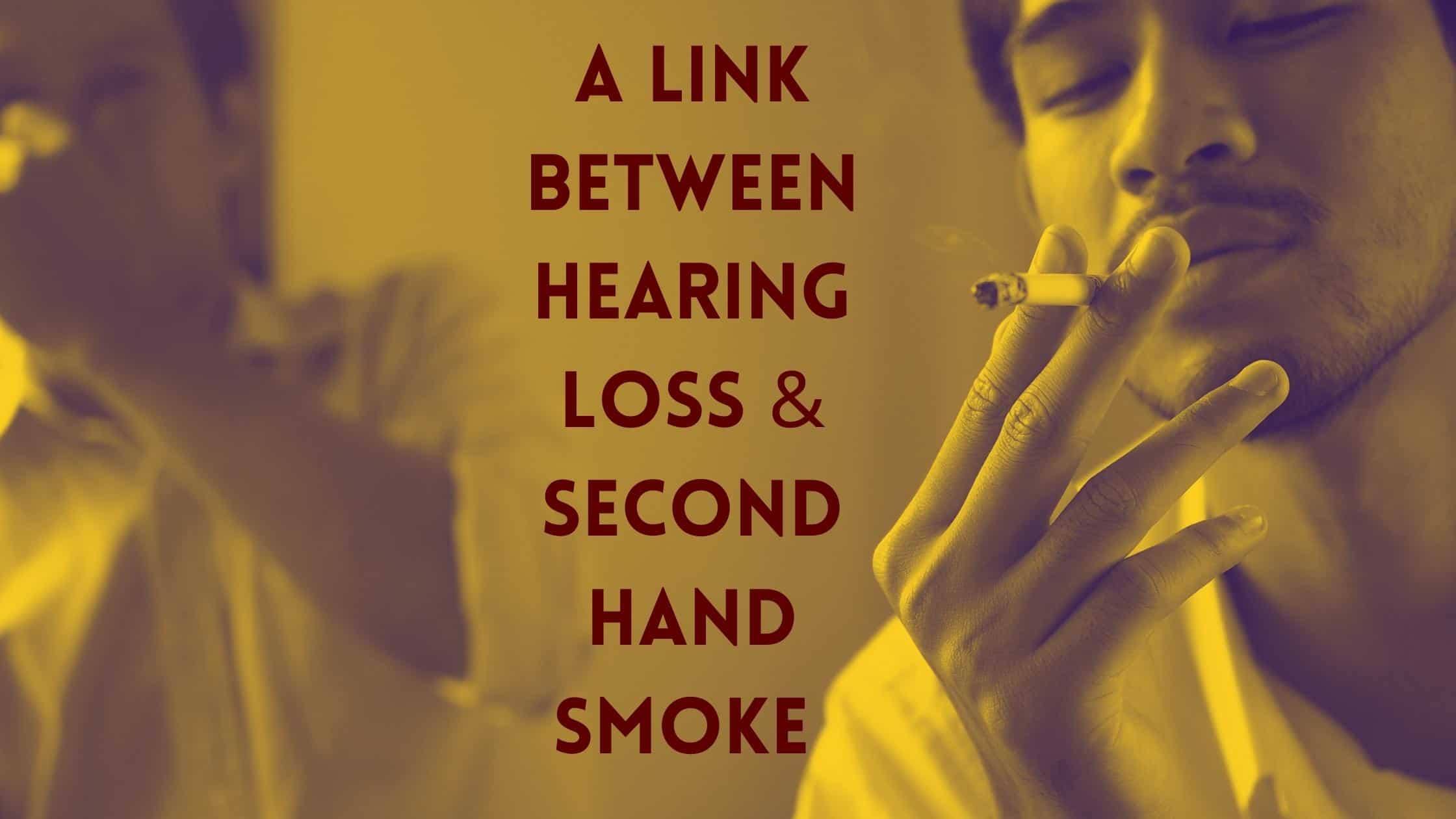
Public health experts are quick to point toward lifestyle behaviors as a way to improve wellbeing. Some of the other factors that can cause poor health are beyond our control. Variables such as heredity and exposure to pollution can’t be changed at the individual level, so public health saves those considerations for policymakers. In order to improve our health and wellbeing, we can modify some lifestyle habits such as nutrition and exercise.
However, did you know that the lifestyle behaviors of others can affect us? We know beyond a doubt that smoking negatively affects our own health outcomes, but secondhand smoke can also harm the people around us. A recent study demonstrated that secondhand smoke was correlated with a surprising dimension of health: hearing loss. The effects occurred at a young age, leading researchers to believe that smoking cessation might not only protect your own hearing but also the hearing of others.
The Study
In order to understand the relationship between hearing ability and secondhand smoke, a team of research at New York University Medical Center led by Anil K. Lalwani tackled the topic of adolescent hearing loss. The National Health and Nutrition Examination Survey 2005–2006 tracked the hearing ability of 1533 young people aged 12-19. The survey made it possible to conduct hearing tests and also to measure serum cotinine levels in the bloodstream, a sign of exposure to smoke. These young people also claimed not to be smokers themselves but to be exposed to secondhand smoke in the home.
The Results
After correlating hearing ability with levels of serum cotinine in the bloodstream, these researchers found some powerful results. First of all, exposure to secondhand smoke was related to increased risk of low-frequency hearing loss. This finding is important for several reasons. First of all, those in the study were younger than the average group who experienced hearing loss. Second, high frequencies tend to be the first to go, and this group demonstrated the opposite trajectory. Other results were compelling, as well. The level of serum cotinine in the blood was directly correlated with rates of hearing loss, so it appears that more secondhand smoke exposure leads to higher rates of hearing loss. Finally, those adolescents who had low-frequency hearing loss tended not to report hearing loss. In fact, 82 percent of those with hearing loss did not know they had it.
The Implications
With these results in mind, public health officials can direct their campaigns in several directions. The primary target of these public awareness programs has to do with smoking cessation. In addition to the many other health problems that are associated with smoking, secondhand effects are another great concern. Some people are not as concerned with their own health as they are with the health of others, particularly young people in their lives, including their own children.
By directing public health advocacy campaigns with this relationship in mind, smoking cessation programs might become more effective. In addition to campaigns directed toward smokers, policymakers can enhance services for those with hearing loss, as well. By increasing access to treatment for hearing loss, the effects of secondhand smoke might be alleviated for some of these young people who have already incurred low-frequency hearing loss.
Finally, public awareness campaigns can be directed toward young people, encouraging them to consider the possibility that they might have some form of hearing loss. Although hearing loss tends to be associated with seniors, this study demonstrates that young people can experience hearing loss, as well.
If you know someone who is a smoker, particularly in the home, you might want to consider a conversation about smoking cessation. Many negative health outcomes are associated with smoking, including one’s own hearing ability. In addition to the effects for oneself, others in the home can experience some of these negative outcomes, as well.
Encouraging your loved one to pursue smoking cessation can have a ripple effect of good health for the entire family. In addition, those who have already incurred hearing loss can take a proactive step by scheduling a hearing test. Getting a sense of the nature and degree of hearing loss is the first step in the direction of treatment!
